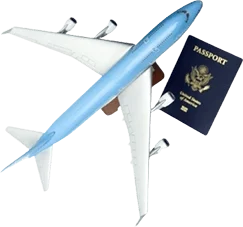
Study in Ireland

- Study in Ireland
- Why Study in Ireland?
- Education System
-
Higher Education
(Undergraduate and
Postgraduate Degrees) - Intakes
- Tuition Fees and Scholarships
-
Cost of Living for
International Students -
Work Rights for
International Students in Ireland -
Post-Study Work
Opportunity - Application & Admission Process
- Requirements for Student Visa
Study in Ireland
Ireland, known for its rich history, stunning landscapes, and renowned educational institutions, has become an increasingly popular destination for international students seeking quality education and vibrant cultural experiences. With a reputation for academic excellence, a welcoming atmosphere, and a diverse range of programs, studying in Ireland offers students a unique opportunity for personal and academic growth. In this guide, we will explore the various aspects of studying in Ireland, including its education system, top universities, living expenses, visa requirements, and more.
Geography and Climate: Situated in the northwestern region of Europe, Ireland boasts picturesque landscapes ranging from lush green countryside to dramatic coastal cliffs. The temperate maritime climate ensures mild winters and cool summers, making it a comfortable environment for both study and leisure.
Culture and Lifestyle: Ireland is renowned for its rich cultural heritage, vibrant music scene, and warm hospitality. Students can immerse themselves in traditional Irish music, dance, and folklore while exploring the country's historic landmarks, bustling cities, and charming villages.
Why Study in Ireland?
Studying in Ireland offers a range of benefits that make it an attractive destination for international students:
High-Quality Education: Ireland is home to several internationally renowned universities and colleges known for their high academic standards and cutting-edge research facilities. Many Irish institutions rank highly in global university rankings.
Wide Range of Courses: Irish universities offer a diverse range of programs across various disciplines, catering to different academic interests and career goals. Whether you're interested in arts, sciences, business, technology, or other fields, you'll likely find suitable courses in Ireland.
Innovative Teaching Methods: Irish universities often employ innovative teaching methods, focusing on critical thinking, problem-solving, and practical skills development, which are highly valued by employers worldwide.
English Language: English is the primary language of instruction in Irish universities, making it an ideal destination for international students who wish to study in an English-speaking environment. This also helps non-native English speakers improve their language skills.
Cultural Experience: Ireland boasts a rich cultural heritage and vibrant contemporary culture. Studying in Ireland provides an opportunity to immerse yourself in this dynamic cultural scene, including music, literature, arts, and festivals.
Safe and Welcoming Environment: Ireland is known for its friendly and welcoming atmosphere. The country is considered safe for international students, with low crime rates and a supportive community.
Gateway to Europe: Ireland's strategic location within Europe makes it a convenient base for exploring other European countries during breaks or weekends. With its excellent transportation links, you can easily travel to nearby countries and experience different cultures.
Internship and Career Opportunities: Ireland's strong economy and thriving industries offer ample internship and career opportunities for students, especially in sectors such as technology, pharmaceuticals, finance, and hospitality.
Post-Study Work Options: Ireland provides favorable post-study work opportunities for international students. Graduates can avail of the Third Level Graduate Scheme, allowing them to stay in Ireland for up to two years to seek employment or start their own businesses.
Quality of Life: With its stunning landscapes, lively cities, and friendly communities, Ireland offers an excellent quality of life for students. From bustling urban centers to serene countryside, there's something for everyone in Ireland.
Structure of Education System in Ireland
The education system in Ireland is comprehensive and structured, consisting of primary, secondary, and tertiary levels, along with further education options. Here's an overview of each level:
Primary Education: Primary education in Ireland is for children aged 4 to 12 and typically spans eight years (junior infants to sixth class). It is compulsory for children aged 6 to 16. The primary curriculum covers a range of subjects, including English, Irish (Gaeilge), mathematics, social, environmental and scientific education (SESE), arts education, physical education (PE), and social, personal, and health education (SPHE). Primary education is provided by both state-funded (national) schools and private schools, with the majority of schools being under the patronage of religious bodies.
Secondary Education: Secondary education in Ireland is for students aged 12 to 18 and generally comprises six years (first year to sixth year). The Junior Cycle, spanning three years (first to third year), involves a broad curriculum, including subjects like English, Irish, mathematics, science, history, geography, and more. At the end of the Junior Cycle, students take the Junior Certificate examination. The Senior Cycle, covering three years (transition year, fifth year, and sixth year), offers students the opportunity to study a more focused curriculum and prepare for the Leaving Certificate examination. Transition Year is an optional one-year program aimed at providing students with a range of educational experiences outside the traditional curriculum.
Tertiary Education: Tertiary education in Ireland includes universities, institutes of technology, and colleges of education. The higher education sector in Ireland is internationally recognized for its quality and offers a wide range of programs at undergraduate and postgraduate levels. The Central Applications Office (CAO) manages applications for undergraduate courses in Irish higher education institutions. Some of the prominent universities in Ireland include Trinity College Dublin, University College Dublin, and University College Cork.
Further Education and Training: Further education and training (FET) in Ireland provide a range of options for individuals seeking to enhance their skills or pursue vocational education. This includes post-leaving certificate (PLC) courses, apprenticeships, traineeships, and adult education programs. FET institutions offer courses in various fields, including business, healthcare, construction, information technology, and more.
Higher Education (Undergraduate and Postgraduate Degrees)
Higher education in Ireland encompasses both undergraduate and postgraduate degrees offered by universities, institutes of technology, and other higher education institutions. Here's an overview of the system:
Undergraduate Degrees
Bachelor's Degrees (Honours): These typically span three to four years and are awarded in various disciplines such as Arts (BA), Science (BSc), Engineering (BEng), Business (BBA), Medicine (MB, BCh, BAO), Law (LLB), and more.
Bachelor's Degrees (Ordinary): Some programs offer ordinary bachelor's degrees, which are generally three years in duration and may not involve as much specialization or depth of study as honours degrees.
Postgraduate Degrees
Master's Degrees: These programs usually last one to two years and can be either coursework-based (taught master's) or research-based. Common degrees include Master of Arts (MA), Master of Science (MSc), Master of Business Administration (MBA), Master of Engineering (MEng), etc.
PhD (Doctorate): Doctoral programs typically involve three to four years of original research and culminate in the submission and defense of a thesis. Successful completion leads to the award of a Doctor of Philosophy (PhD) or equivalent degree.
Pathways Programs in Ireland , Foundation and Pre Master:
Pathway programs, including foundation and pre-master's programs, are popular options for international students looking to pursue higher education in Ireland. These programs provide academic and English language support to students who may not meet the direct entry requirements for undergraduate or postgraduate degrees.
Foundation Programs: Foundation programs are typically one-year courses designed for students who need to improve their academic skills or English language proficiency before starting an undergraduate degree in Ireland. These programs often cover subjects relevant to the chosen field of study and provide a smooth transition to university-level education.
Pre-Master's Programs: Pre-master's programs are designed for students who have already completed a bachelor's degree but need additional preparation before starting a master's degree. These programs help students bridge any gaps in their academic background or language skills and ensure they are ready for the rigor of postgraduate study.
Some universities and colleges in Ireland offer their own pathway programs, while others may work in partnership with private language schools or pathway providers.
Academic Year Start (Intakes)
In Ireland, academic intakes for international students can vary depending on the institution and the specific program of study. However, in general, there are two main intakes for international students:
September Intake/Fall Semester: This is the primary intake period and is the most common time for international students to begin their studies. Many undergraduate and postgraduate programs start in September. It's essential to check with individual universities for specific program start dates and application deadlines.
January Intake/Spring Semester: Some universities and colleges in Ireland offer a January intake for certain programs. While not as common as the September intake, this option provides an opportunity for students who may have missed the September deadline or prefer to start their studies in the spring.
Additionally, some institutions may offer additional intakes or rolling admissions for specific programs, particularly at the postgraduate level. Prospective international students should always verify the intake dates and application deadlines with their chosen institutions to ensure they have the most accurate and up-to-date information.
Tuition Fees and Scholarships
In Ireland, tuition fees for higher education vary depending on factors such as the institution, the course of study, and whether the student is from within the European Union (EU) or outside of it. Here's a general overview:
Tuition Fees:
EU/EEA Students: For undergraduate programs, EU/EEA students typically pay a "Student Contribution" fee, which is regulated by the Irish government. As of my last update, this fee is capped at around €3,000 to €3,500 per year. Postgraduate tuition fees for EU/EEA students vary depending on the institution and program. They generally range from €4,000 to €10,000 or more per year.
Non-EU/EEA Students: Tuition fees for non-EU/EEA students are higher compared to EU/EEA students. Undergraduate fees can range from €6,000 to €25,000 or more annually, depending on the institution and course. Postgraduate fees for non-EU/EEA students are typically higher and can range from €10,000 to €35,000 or more per year.
Scholarships and Financial Aid:
Government Scholarships:
The Irish government and various governmental agencies offer scholarships to both domestic and international students.
Examples include the Government of Ireland International Education Scholarships, which are awarded to high-achieving students from non-EU/EEA countries to study in Ireland.
Institutional Scholarships:
Many Irish universities and colleges offer scholarships to attract talented students.
These scholarships may be merit-based, need-based, or awarded for specific achievements or contributions.
Examples include Trinity College Dublin's Global Excellence Undergraduate Scholarships and University College Dublin's Global Excellence Graduate Scholarships.
External Scholarships:
Students can explore scholarships offered by external organizations, foundations, and companies.
These scholarships may be targeted toward specific fields of study, nationalities, or demographics.
Research Funding:
For students pursuing research-based programs, such as PhDs, there may be opportunities for funded research positions or grants.
These positions often come with a stipend to cover living expenses in addition to covering tuition fees.
Financial Aid Programs:
In addition to scholarships, students can apply for financial aid programs, such as grants and loans, to help cover tuition fees and living expenses.
The Student Grant Scheme, administered by Student Universal Support Ireland (SUSI), provides financial assistance to eligible students based on criteria such as income and residency.
Students interested in studying in Ireland should thoroughly research available scholarships and financial aid options, as well as any eligibility criteria and application deadlines. It's also advisable to contact the admissions offices or representative of specific institutions for personalized guidance and support regarding scholarships and funding opportunities.
Cost of Living for International Students
The cost of living for international students in Ireland can vary depending on factors such as location, lifestyle, and accommodation preferences. Here's a general breakdown of some common expenses:
Accommodation: This can be one of the biggest expenses. The cost varies depending on whether you choose to live on-campus, off-campus, or in private accommodation. On-campus accommodation typically ranges from €4,000 to €7,000 per academic year. Off-campus rent can vary greatly depending on location and the type of accommodation.
Food: The cost of groceries can vary, but as a rough estimate, a student may spend around €50 to €80 per week on food.
Transportation: If you're using public transportation regularly, expect to spend around €50 to €100 per month on transportation expenses such as buses or trains. Some cities also have discounted rates for students.
Utilities: If you're renting accommodation, you may need to budget for utilities such as electricity, heating, internet, and water. This could range from €50 to €100 per month, depending on usage and whether it's included in your rent.
Health Insurance: Non-EU students are typically required to have private health insurance, which can cost around €500 to €1,000 per year.
Books and Supplies: This cost varies depending on your course of study but can range from €300 to €800 per academic year.
Miscellaneous Expenses: This includes items such as clothing, toiletries, entertainment, and occasional dining out. Budgeting around €100 to €200 per month for miscellaneous expenses is a good starting point.
It's important to note that these are rough estimates, and actual expenses may vary. Additionally, exchange rates can also impact the cost of living for international students. It's advisable to research specific costs related to your chosen city and university to get a more accurate idea of the expenses you'll incur.
Work Rights for International Students in Ireland
International students in Ireland have certain rights regarding work, but they are subject to specific conditions. Here are some key points regarding work rights for international students in Ireland:
Stamp Conditions: International students in Ireland are typically granted permission to stay in the country via a stamp on their passport. The type of stamp they have determines their eligibility to work. Stamp 2 and Stamp 2A allow limited work rights, while Stamp 1G allows unrestricted work rights.
Stamp 2: Students with Stamp 2 permission (Stamp 2 and Stamp 2A) are generally allowed to work up to 20 hours per week during term time and full-time during holidays (June to September and from 15 December to 15 January inclusive and for 8 weeks from the end of the academic year). However, certain restrictions may apply depending on the individual's circumstances.
Stamp 1G: Students with Stamp 1G permission are permitted to work full-time without any restrictions. This stamp is typically granted to students who have completed their studies in Ireland and have been offered a graduate-level job.
Employment Restrictions: International students are not allowed to engage in certain types of work, such as self-employment, professional sport, or as an entertainer.
Taxation: International students who work in Ireland are subject to taxation. They must obtain a Personal Public Service Number (PPSN) and register with the Revenue Commissioners for tax purposes.
Work Visa Requirements: If international students wish to stay and work in Ireland after completing their studies, they may need to apply for a work visa or permit, such as the Critical Skills Employment Permit or the General Employment Permit, depending on their circumstances and job offers.
Employment Rights: International students working in Ireland are entitled to certain employment rights, such as the national minimum wage, rest breaks, and annual leave.
Immigration Regulations: It's crucial for international students to stay informed about any changes in immigration regulations regarding work rights to ensure compliance with Irish law.
It's advisable for international students to consult with their educational institution's international office or with the Irish Naturalisation and Immigration Service (INIS) for the most up-to-date information regarding their specific circumstances and work rights in Ireland.
Post-Study Work (PSW)
Ireland offers post-study work opportunities for international students through its Third Level Graduate Scheme. Here's an overview of the program:
Third Level Graduate Scheme: This scheme allows non-EU/EEA students who have completed their studies at a recognized Irish higher education institution to remain in Ireland for a period after graduation to seek employment.
Duration: Graduates can stay in Ireland for either 12 or 24 months under this scheme, depending on their level of qualification. Master's and PhD graduates are eligible for 24 months, while bachelor's degree graduates are eligible for 12 months.
Job Search: During the permitted stay, graduates can work in any field and for any employer without the need for an employment permit. This provides them with the freedom to explore employment opportunities in Ireland.
Work Permit: If a graduate secures a job during the permitted stay, they can apply for a work permit or Green Card permit to continue working in Ireland after the expiry of the Third Level Graduate Scheme.
Eligibility: To qualify for the scheme, students must have completed a recognized degree, diploma, or master's program from a participating Irish higher education institution.
Application Process: Graduates need to register for the scheme with the Irish Naturalisation and Immigration Service (INIS) within six months of receiving their final results. They may need to provide proof of their qualification and other supporting documents.
It's essential to keep in mind that immigration policies and regulations can change, so it's crucial to check the latest information from official sources, such as the Irish Naturalisation and Immigration Service (INIS) or the relevant government department in Ireland.
Application & Admission Process
The admission and application process for international students applying to universities and colleges in Ireland is similar to that of domestic students, but there are some additional steps and considerations. Here's a detailed overview:
Research: Start by researching universities and colleges in Ireland that offer programs suitable for international students. Consider factors such as program offerings, tuition fees, location, campus facilities, and support services for international students.
Program Selection: Choose the program(s) you wish to apply for. Ensure that the program meets your academic and career goals and that you meet the admission requirements.
Check Entry Requirements: Review the specific admission requirements for international students. These typically include academic qualifications (such as high school transcripts for undergraduate programs or bachelor's degree transcripts for postgraduate programs), English language proficiency, and any additional requirements specific to the program or institution.
English Language Proficiency: If English is not your first language, you will likely need to demonstrate proficiency by providing scores from standardized English language tests such as the IELTS, TOEFL, or Pearson PTE Academic. Check the minimum score requirements set by the institution you're applying to.
Application Process: Determine the application process for international students at your chosen institution. Most universities and colleges in Ireland have online application systems where you can submit your application directly. Some institutions may use centralized application platforms like the Common Application or accept applications through their own portals.
Prepare Application Documents: Gather the necessary documents for your application, including academic transcripts, certificates, English language test scores, a CV or resume, letters of recommendation, a personal statement or essay, and a copy of your passport.
Submit Application: Complete the online application form and upload all required documents. Double-check that all information provided is accurate and up-to-date.
Wait for a Decision: After submitting your application, you will need to wait for the institution to review it. This process may take several weeks to months, depending on the volume of applications and the specific program.
Receive Offer: If your application is successful, you will receive an offer of admission from the institution. Carefully review the offer letter, including any conditions or deadlines specified.
Accept Offer: Once you've decided to accept the offer, follow the instructions provided by the institution to confirm your acceptance. This may involve paying a deposit or completing additional paperwork.
Apply for Student Visa: If you're an international student from outside the European Union (EU) or European Economic Area (EEA), you will need to apply for a student visa to study in Ireland. Check the visa requirements and application process through the Irish Naturalisation and Immigration Service (INIS) or the nearest Irish embassy or consulate in your country.
Arrange Accommodation and Travel: Once your admission and visa are secured, start making arrangements for accommodation, travel, and any other logistics for your move to Ireland.
Pre-departure Preparation: Familiarize yourself with the culture, customs, and academic environment in Ireland. Consider attending orientation sessions or webinars organized by your institution for international students.
Arrival in Ireland: Upon arrival in Ireland, make sure to fulfill any remaining administrative requirements, such as registering with the local authorities and the institution, attending orientation programs, and settling into your accommodation.
It's essential to start the application process well in advance of your intended start date to allow sufficient time for processing and to ensure a smooth transition to studying in Ireland as an international student.
Requirements for Student Visa
To obtain a student visa for Ireland, you typically need to fulfill several requirements. These requirements may vary slightly depending on your nationality and the specific circumstances of your application, so it's important to check with the Irish embassy or consulate in your country for the most accurate information. However, here are the general requirements:
Letter of Acceptance: You need to have been accepted into a recognized educational institution in Ireland and must provide a letter of acceptance from the institution confirming your enrollment and the course details.
Proof of Funds: You must demonstrate that you have sufficient funds to support yourself financially during your stay in Ireland. This usually involves providing bank statements or other financial documents showing that you have enough money to cover tuition fees, accommodation, living expenses, and other costs.
Health Insurance: You may be required to have private medical insurance that will cover you during your time in Ireland. Some institutions may offer their own health insurance plans for international students.
English Proficiency: If your course is not in English, you may need to provide proof of your proficiency in the English language. This is typically demonstrated through standardized tests such as the IELTS or TOEFL.
Genuine Intention to Study: You must be able to demonstrate that you have a genuine intention to study in Ireland and that you plan to return to your home country after completing your studies.
Visa Application Form: You will need to complete a visa application form, which is available on the website of the Irish Naturalisation and Immigration Service (INIS).
Biometric Information: Depending on your nationality, you may need to provide biometric information (such as fingerprints) as part of your visa application.
Additional Documentation: You may be required to provide additional documentation depending on your individual circumstances, such as a criminal record certificate or evidence of accommodation arrangements in Ireland.
It's important to apply for your student visa well in advance of your planned travel date, as processing times can vary. Additionally, make sure to carefully review the specific requirements for your country of origin and consult with the Irish embassy or consulate for personalized guidance.
Start Your Journey Today!


Begin your educational adventure in Ireland today! With its rich cultural heritage, vibrant cities, and world-renowned universities, Ireland offers an unparalleled study experience. Immerse yourself in a diverse academic environment while enjoying breathtaking landscapes and friendly communities. Whether you're pursuing undergraduate, postgraduate, or research opportunities, Ireland provides top-tier education and a supportive learning atmosphere. Expand your horizons, make lifelong connections, and unlock endless possibilities for your future. Start your journey toward academic excellence in Ireland – where every day is a new chapter in your success story. Apply now and embark on a transformative educational journey!




